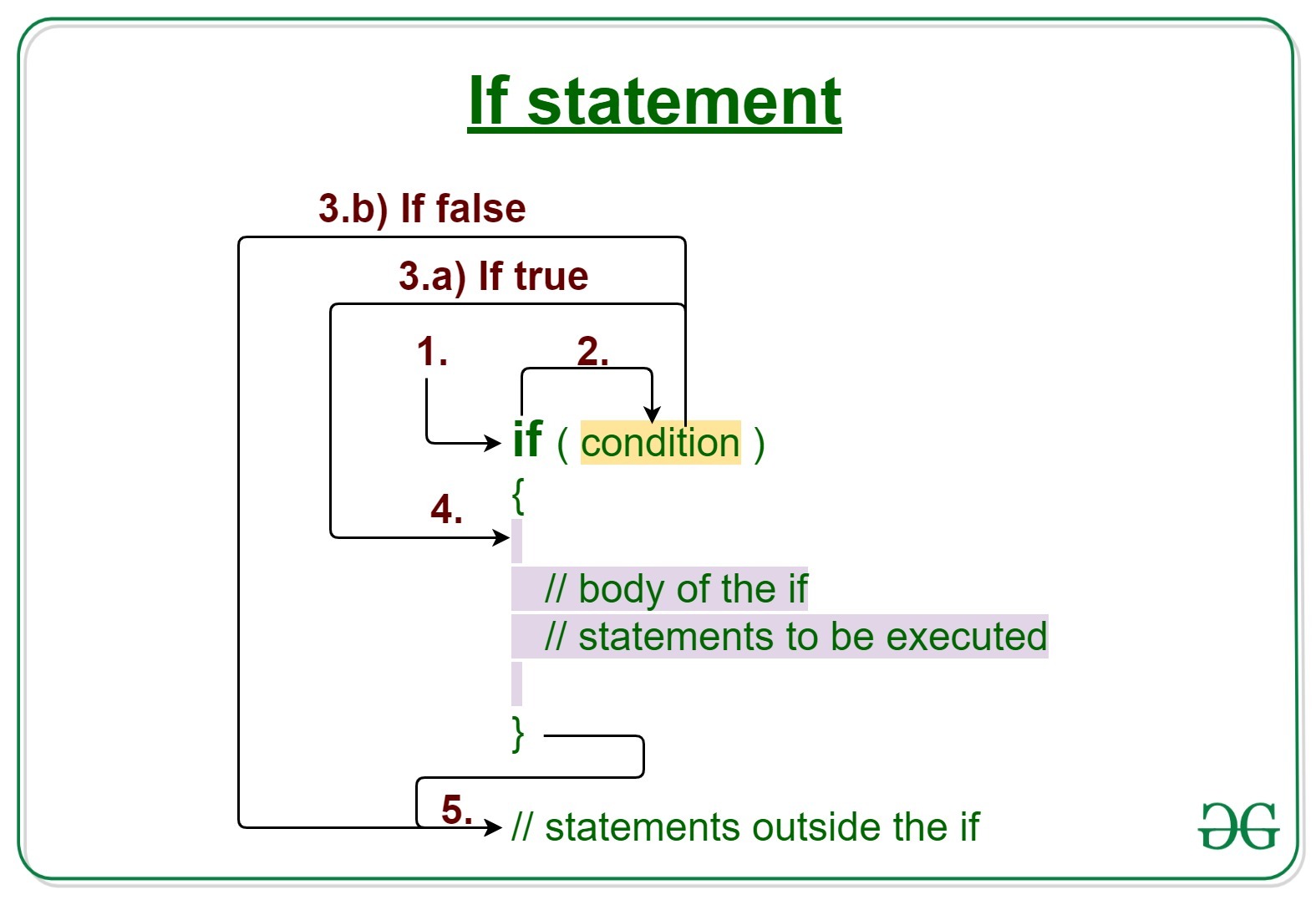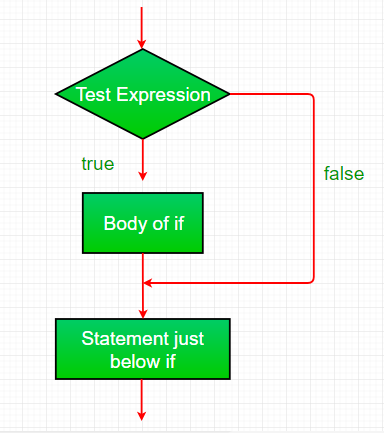C / C++中的“决策制定”有助于编写决策驱动的语句并根据某些条件执行特定的代码集。
C / C++ if语句是最简单的决策语句。它用于根据某种类型的条件来决定是否执行某个语句或语句块。

句法:
if(condition)
{
// Statements to execute if
// condition is true
}if语句的工作
- 控制属于if块。
- 流程跳至“条件”。
- 条件已测试。
- 如果Condition得出的结果为true,请转到步骤4。
- 如果Condition得出false,请转到步骤5。
- 执行if块或if内的主体。
- 流程从if块中退出。
流程图
注意:如果我们没有在if(condition)之后提供大括号'{‘和’}’,则默认情况下if语句将立即一个语句放在其块内。例如,
if(condition)
statement1;
statement2;
// Here if the condition is true,
// if block will consider only statement1
// to be inside its block.范例1:
C
// C program to illustrate If statement
#include
int main()
{
int i = 10;
if (i < 15) {
printf("10 is less than 15 \n");
}
printf("I am Not in if");
} C++
// C++ program to illustrate If statement
#include
using namespace std;
int main()
{
int i = 10;
if (i < 15) {
cout << "10 is less than 15 \n";
}
cout << "I am Not in if";
} C
// C program to illustrate If statement
#include
int main()
{
int i = 10;
if (i > 15) {
printf("10 is greater than 15 \n");
}
printf("I am Not in if");
} C++
// C++ program to illustrate If statement
#include
using namespace std;
int main()
{
int i = 10;
if (i > 15) {
cout << "10 is greater than 15 \n";
}
cout << "I am Not in if";
} 输出:
10 is less than 15
I am Not in if
空运行示例1:
1. Program starts.
2. i is initialized to 10.
3. if-condition is checked. 10 < 15, yields true.
3.a) "10 is less than 15" gets printed.
4. "I am Not in if" is printed.
范例2:
C
// C program to illustrate If statement
#include
int main()
{
int i = 10;
if (i > 15) {
printf("10 is greater than 15 \n");
}
printf("I am Not in if");
}
C++
// C++ program to illustrate If statement
#include
using namespace std;
int main()
{
int i = 10;
if (i > 15) {
cout << "10 is greater than 15 \n";
}
cout << "I am Not in if";
}
输出:
I am Not in if
相关文章:
- C / C++中的决策
- C / C++ if else语句和示例
- C / C++,如果带有示例,则为梯形图
- C / C++中的Switch语句
- C / C++中的Break语句
- 在C / C++中继续执行语句
- C / C++中的goto语句
- C / C++中的带有示例的return语句
想要从精选的最佳视频中学习和练习问题,请查看《基础知识到高级C的C基础课程》。